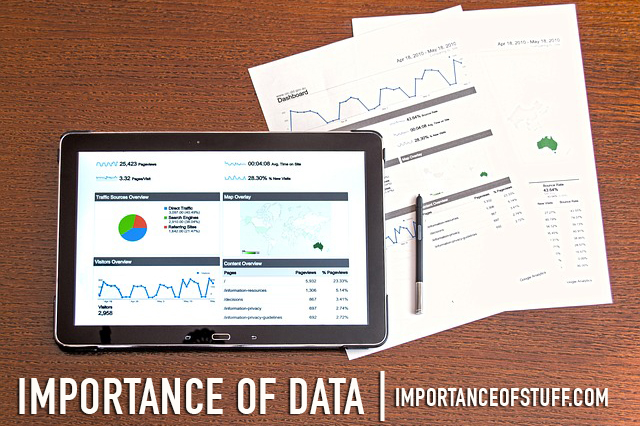Raw data is the collection of facts and figures that a company accumulates and processes all the time. Even the smallest and most innocuous of detail can be tantamount to important data, such as individual sale records, downloads, and visits to the website. All this data is then put into context to form information, which gives the company an understanding of the customer base, the performance of the product or service, and the reaction of the target market.
Patterns and trends can be seen in the analysis of daily sales, such as peak selling periods and customer likes and dislikes. Such information, gleaned from pieces of data pieced together, gives the seller ample time to strategize their business policies.

Better decision making
Business intelligence tools provide the sellers with important information that they need to make the important and effective decisions regarding strategy and business planning. The data that a company collects is stored in many devices and in many forms, many of them completely unrelated to each other.
Effective business management tools will help the company sort out this data in relevant folders, so that each piece of data can be extrapolated to aid in a particular business strategy. These pieces of data, when put together and placed in context, give the managers insight into market trends and competitor products and services, thus enabling them to make better decisions regarding their branding and goods and services offered.
Bigger business impact
According to some recent research, it has been seen that a company can be capable of making a very big impact by effecting some very minor changes in policy and branding. This, in turn, can be brought about by some very small, but by no means minor, changes in the quality of data accumulated, its usability, sales mobility, remote accessibility, and intelligence.
According to the study, a company can increase its sales significantly, by as much as 14 percent, simply by increasing the usability of data by a small margin. This, coupled with smart investments in business tools that will employ the data efficiently, can translate into even greater profits.
Better chances of success
Common sense dictates that when a decision in a business is made on the basis of the available data, it has a far greater chance of succeeding than a strategy that is planned purely on the basis of gut feeling. If a centralized data collection system is implemented, the organization will be in a better position to make decisions that are majorly driven by the availability of data.
By putting such a system into place, the data collected by a company throughout its years of staying in business will have aver string impact on its ability to stay afloat and make an impact in the market. Of course, it is to be kept in mind that this will only be possible if the data accumulated is of sufficient quantity and quality.
Global competition
Business managers have to be equipped with effective business management tools, and the capacity to collect and manage large amounts of data is essential for the same. It is extremely important that the companies are able to react fast to the changing requirements and demands of their customer base, either owing to more and better options, or due to a change in the environment.
With the advancement of the internet, the marketplace is becoming truly global, and increasingly more so. As a result, companies now have to compete on a global scale, making the process of decision making in business even more complex. It is ever more essential, at this point, to be able to collect and analyze data efficiently to stay ahead of the others and abreast of the times.
Conclusion:
Data management is becoming more and more user driven every day, and business makers are in constant need to access their data anytime and anywhere. To meet this demand, a slow but sure change is being effected in the fields of data analysis and data management. Traditionally, these were the jobs that the IT department was entrusted with, but the fields have grown bigger, and have spilled beyond the scope of the IT department.
This has come as a boon to startups and small and medium sized businesses, which need to collect and manage a huge amount of data, but do not have the capacity to employ an entire IT department to handle such tasks. Thankfully, today there is no dearth of cloud based apps that can be used to sort out and categorize all the relevant data and can be accessed anytime ad and from anywhere, making it easier for the management to recall the data at a moment’s notice without having a fully fledged IT team.